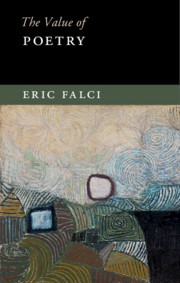3 - Feeling Thought
Published online by Cambridge University Press: 20 November 2020
Summary
Is there a way to understand a poem as an intertwining of thought and feeling? If every art, according to Pater in The Renaissance, has “its own peculiar and untranslatable sensuous charm,” “its own special mode of reaching the imagination,” and “its own special responsibilities to its material,” then can we also understand poems to offer unique instantiations of thought, which are inextricable from their imaginative, sensuous, and affective dimensions? Previous chapters have considered the value of poetry as a type of linguistic attentiveness and play, as a practice of vocalization and inscription, and as a way to map the complexities of subjectivity. This chapter follows up on those considerations in order to think about how poems might think, and about how both writers and readers might approach a poem as a crystallized yet open process of thinking and feeling. Not only the presentation of a speech act, nor the account of a subjectivity in formation, nor the formalized play of language, a poem can also depict and spur a process of thought that is, as it were, felt. Via readings of poems by Tracy K. Smith, Tongo Eisen-Martin, and Lisa Robertson, this chapter aims to show how poets map and process thought, and how readers think their way through poems.
- Type
- Chapter
- Information
- The Value of Poetry , pp. 89 - 119Publisher: Cambridge University PressPrint publication year: 2020



